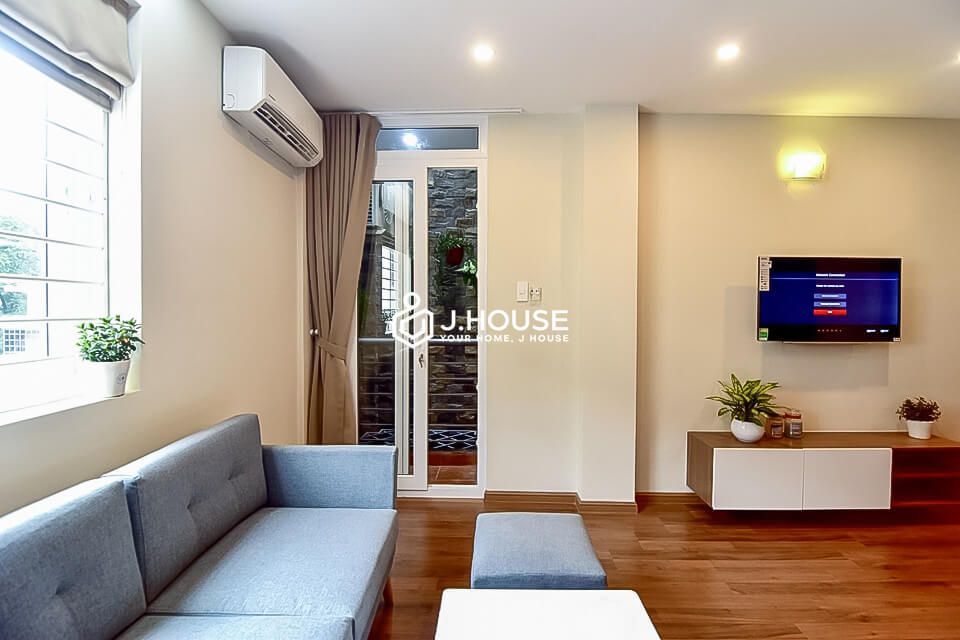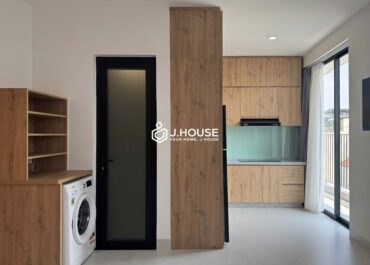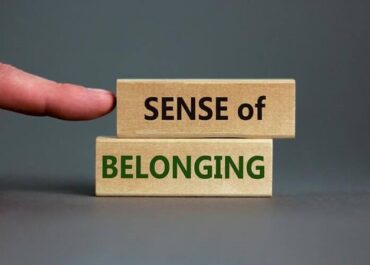Latest Properties
Everything You Need to Know About Your Security Deposit
You are the owner, tenant or agent, … and you are going to sign a leasing contract. You are worried and have many questions about the deposit. Why deposit and deposit to insure for what? You have not understood your responsibilities and obligations when paying for a deposit. And there are too many other questions about the deposit that you need to understand to reassure yourself and make the right decisions.
Let JHouse provide you with information about the deposit and how it works in the Vietnamese market of leasing. The article will be long and full of useful information, so please be patient and do not skip any bullet. We are sure it will be useful to you. Let’s just get started.
Everything You Need to Know About Your Security Deposit
1. What is a security deposit?
A security deposit is a specific amount that a tenant must pay to the owner which is seen as a commitment to perform the lease and protect/maintain the owner’s property. The security deposit is seen as a tangible means of security in case of damages, loses the property or fails to fulfill the terms of the lease cause by tenants.
2. How many types of security deposit are there?
A security deposit is a common term that refers to the amount of money a tenant must pay to the owner. However, the deposit will cover the following types:
- Deposit for contract performance and commitment to property protection.
- Deposit for pets. See more pet friendly apartments at JHouse.
- A separate deposit for a high-value or special property.
- Deposit for car parking.
3. Are there any alternatives to the deposit?
Almost tenants will pay a deposit in the traditional way which means they will provide the owner with a certain amount of security deposit at the beginning of the lease. However, there are alternatives ways for tenants that are helpful solutions in paying their security deposit and reducing the financial burden at the start of a lease.
- Rental insurance: It is understood as a small fee that you need to pay the owner monthly to secure the contract execution. This is an extra amount in addition to the monthly rent that tenants need to pay. Tenants can suggest a rental insurance around 5%, 10%, 15% or 20% on the monthly rent and this fee will not be refunded to the tenant at the end of the contract.
- Pay per damage: Tenant will pay for property damage or loss for each case. However, tenants need to prove they are a great tenant with a good payment history, quick compensation, etc. at previous leasing at other properties. This is a big barrier for tenants to successfully dealing with the landlord
- Delayed deposit payment: The lessor can request to pay partly by partly within a definite period of time until full payment for the deposit to reduce financial pressure at the beginning.
4. Basis for regulation of security deposit?
In Vietnam, there is still no law for rental security deposit. However, the owners often regulate the amount of the deposit on the following factors:
- The common custom of the current market.
- Monthly rent fee.
- The value of properties inside the apartment.
- Length of leasing contract.
5. How much is the security deposit?
There is no specified amount of the deposit. However, depending on the rental period and the type of property, there will be a minimum deposit. The minimum of the security deposit is equivalent to one month’s rent.
6. What is the difference in deposit for serviced apartments, condominiums, whole houses, villas and commercial establishments?
There is no specific regulation on the amount of security deposit for the above type of properties. However, according to local practice, the deposit amount for the above types will be as follows:
- For serviced apartments: The deposit is one month’s rent for a 6-month contract, two months’ rent for a contract of 12 months or more.
- For apartments: The deposit is two months’ rent. Regardless of the rental period, there are a few owners who will ask for a deposit of three months’ rent.
- Whole houses, villas and commercial establishments: The deposit is two months’ rent for contracts under 03 years, three months’ rent for contracts of 03 years or more. However, there are still some cases that the owner will ask for a higher amount of deposit (04, 05, 06 months) and it depends on the assets inside the house.
7. Who pay for the security deposit?
Most of us think that the deposit will be paid directly by the tenant. However, the deposit can be paid by the following individuals and other organizations:
- Tenants by their own: Definitely.
- Enterprises and public organizations: Companies have a rental policy for their employees or public organizations that provide housing services for government organizations, non-profit organizations, embassies, consulates, state organizations, etc.
- Brokerage Agent: Tenants will work with a brokerage agent. In this case, the brokerage agent will be the one who signs the lease with the property owner and will pay the deposit.
8. Can the broker-dealer receive and keep the deposit?
There have been many unfortunate incidents with tenants when giving the deposit to the brokerage agent. The tenant has been scammed out of the deposit. This is a fact and to eliminate this risk, tenants need to understand more about “who is the one receive the deposit”. The deposit needs to be paid directly to the legal property owner (property owner, authorized person or property manager provided by the property owner). This is the only way for you to eliminate the risk of being deceived. Never pay a deposit to a broker-dealer. Brokerage agents do not have the function of taking deposits from tenants.
9. When does the tenant need to pay the security deposit?
Usually, upon signing the leasing contract, the tenant needs to pay a deposit. However, the deposit can be paid within 02 or 03 days from the date of signing the lease contract. The payment of the deposit as an commitment of the tenant in executing the contract and make the contract to be valid.
10. You need to pay your deposit by cash or bank transfer?
Payment by bank transfer is recommended for all tenants. If you have problems with paying by bank such as: different banks in different countries, high bank transfer fees, etc., then cash payment is substituted. One important note: tenants need to ask the owner for a deposit receipt, whether you pay by cash or by bank transfer.
11. Do you have to pay the security deposit and rent at the same time?
The answer is that it is not necessary to pay at the same time. If you are a person with good finances, you can pay the rent and deposit at the same time. However, a safe solution for you is: pay the deposit when you sign the lease and pay the rent when you move into the house.
12. When is the rental deposit used?
The security deposit serves as a financial protection for the owner’s property from damages cause by tenants and to ensure that all fees are paid. The use of the deposit is clearly specified in the contract. Useful advice from JHouse is: It is necessary to clarify the terms of use of the deposit in the leasing contract. Deposits are used in the following cases:
- Property protection: Deposit is used to pay for damage, repair or loss of property caused by the tenant intentionally or unintentionally.
- Financial protection: When tenants do not pay rent or do not pay fees for other utilities (such as electricity, water, internet, cable TV, parking, use of the gym, swimming pool, …)
- Pet vandalism protection: When a tenant’s pet damages the properties.
13. Does the security deposit increase as the rent increases?
In Vietnam, the deposit will not increase when the rent price increases (rent in period or lease renewal). JHouse’s advice is: make it clear in the contract to avoid unexpected situations.
14. Does the rental deposit have interest?
A security deposit is a security deposit from the tenant to the owner. The owner is considered the temporary keep the money from the tenant and is entitled to use it to ensure the legal rights when performing the contract. Therefore, this amount will not be charged interest.
15. Can the security deposit be used as rent?
The deposit cannot be used as rent. However, anything can happen. The tenant may suggest to the owner to consider the security deposit as rent in the final payment period of the lease. To make sure the tenant should negotiate with the owner before signing the leasing contract.
16. When the tenant has a problem and cannot perform the contract, can the he/she get the deposit back?
Definitely not. The deposit is a way to make sure that tenant will perform the contract. If the tenant does not perform the contract, the deposit will be lost. However, in some cases when the tenant can explain a good reason for not continuing the lease (such as moving to another province, becoming seriously ill, etc.), the owner will support providing a solution for the tenant to get a partial or full refund of the deposit.
17. Will I get a deposit when the owner breaks the leasing contract?
The tenant will receive the deposit, this will be clearly stated in the contract. However, as a general practice, if the owner breaks the lease agreement, it is necessary to return to the tenant the amount of the deposit that the tenant paid and plus an addition amount contract violation equivalent to 2 times of the deposit amount.
18. When will you get your deposit back?
The contract regulates how long you will get your deposit back after the end of the lease. Usually it is 3 days or 07 days or 10 days or 15 days or there are some owners asking 30 days after the end of the lease to return the deposit to the tenant. However, tenant should try to negotiate with the owner about the shortest time to get it back when signing a lease.
19. When did you lose or have your deposit deducted?
Good advice from JHouse is: make it all clear in the leasing contract.
- Tenant will lose the security deposit in case of: Failure to continue performing the lease. Break the lease before the time of contract end.
- Tenant will be deducted deposit in case: There is damage or loss of property. No rent payments. Do not pay for other utilities fee.
20. How to protect your deposit?
Getting your deposit back is an important step when you end your leasing contract. The security deposit is basically your money and you don’t expect it to be lost or wasted when you move out of the apartment. The landlord is obligated to return the deposit at the end of the leasing and the tenant decides not to extend it further.
Be a smart tenant and carefully prepare solutions to protect your security deposit by: Having a clear tenancy plan, clarifying the deposit terms in the contract, asking the owner for a margin receiving deposits, checking the list of properties before and after moving out, … until working with a brokerage agent.
Check out more JHouse’s 11 tips to protect your deposit.
21. What should the owners do to protect their interests when receiving a rental deposit?
The landlord is the person who will receive the security deposit from the tenant. Therefore, the owner needs to understand the rights and responsibilities when receiving the deposit so that the tenant will not against or accidental in case the deposit is deducted. Owners need to prepare a contract with clear terms for the deposit.
The owner needs to provide a deposit receipt to the tenant. If there is damage, repair or loss of property, the owner needs to provide invoices for the repair or purchase of new property, … to the tenant. It is a reasonable proof for the owner to deduct the deposit.
Offer a suitable time period for the deposit to be returned to tenant at the date of contract end, a sufficient amount of time to inspect for damage and be financially ready.
The owner should consider the security deposit as a temporary keeping and should be refunded at the end of the lease. It is not a profit from business activities. So please do not make a disastrous mistake!
Please clarify payment matters, including the deposit. Instead of messing around with how the security deposit should be handled, make it clear in the leasing contract. Be a smart tenant and a landlord with a deep understanding of your rights and responsibilities.
If you are struggling to find helpful advices on deposit or rental terms and conditions, JHouse staffs are here ready to advise and provide you with useful tips.
©JHouse Team
Website: https://jhouse.vn/
Fanpage: https://FB.com/JHouseVietnam





















